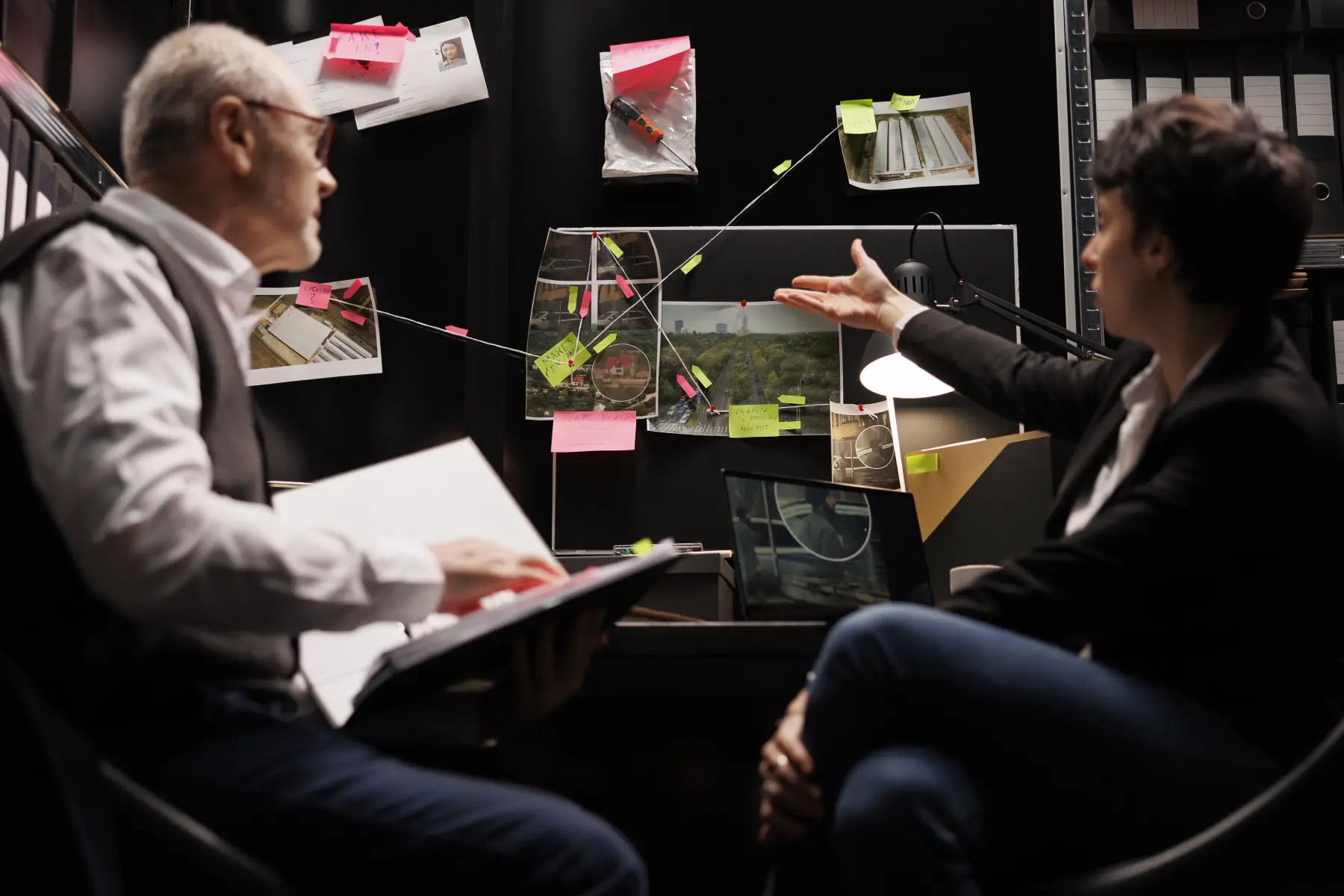In the business world, much emphasis is placed on measurable outcomes—sales figures, project milestones, and the bottom line. While these are undeniably important, the foundation of all successful professional engagements often goes unnoticed: rapport. Rapport is the bridge that turns transactions into enduring relationships, transforming shallow exchanges into meaningful collaborations.
Charisma Unlocked rightly underscores that building rapport is an art—a skill that requires authenticity, emotional intelligence, and a balance of warmth and competence. It is the human element that determines whether a conversation becomes a partnership, a sales pitch converts into a deal, or a leadership interaction inspires trust and loyalty. In this article, we will explore the science and practice of building rapport, offering actionable insights to help business professionals pave the way for transformative relationships.
The Foundation of Rapport in Business
Rapport can be defined as a relationship marked by harmony, trust, and mutual understanding. At its heart, rapport isn’t about agreement or shared interests alone; rather, it lies in creating a sense of connection, wherein both parties feel respected, valued, and understood. Rapport paves the way for effective communication, collaboration, and influence.
Why Rapport Matters
- Trust Building: People are more likely to trust and cooperate with someone they feel a connection with than with someone who focuses solely on completing a task or transaction.
- Stronger Negotiation Outcomes: Research included in Charisma Unlocked points to a 2024 study by Galinsky, Maddux, and Ku that demonstrated how empathy and perspective-taking result in better negotiation outcomes.
- Improved Customer Retention: Empathy and active listening foster loyalty and drive repeat business. Relationships built on rapport are less vulnerable to minor conflicts or market competition.
- Team Collaboration: For leaders, rapport strengthens relationships with team members, inspiring higher engagement, enhanced problem-solving, and more robust collaboration.
Rapport, ultimately, humanises business interactions by prioritising emotional resonance alongside professionalism and expertise.
Steps to Build Rapport That Delivers Business Transformation
Successful professionals understand that rapport doesn’t “just happen.” It is built intentionally through understanding, practice, and a deep commitment to authentic engagement. Below are strategies that bridge the gap between transactional exchanges and transformative relationships.
1. Create a Strong First Impression
First impressions establish the foundation of rapport, as snap judgments can shape how people perceive you for the remainder of your relationship. Psychologists refer to this rapid evaluation as the primacy effect, wherein the emotional tone of a first interaction exerts a long-lasting influence on subsequent impressions.
Practical Suggestions:
- Dress the Part: Present yourself in a manner appropriate for the professional context, reflecting credibility and attention to detail.
- Positive Body Language: Maintain open and approachable gestures. Stand tall, hold a calm posture, and smile genuinely.
- Engage in Warm Introductions: When greeting someone, make eye contact, shake hands firmly, and address them by name.
Remember, building rapport starts with making others feel comfortable in your presence.
2. Practise Active Listening
Listening is not merely waiting for your turn to speak. Instead, it is about fully engaging with what the other person is saying and making them feel heard. Research highlighted in Charisma Unlocked demonstrates how empathy through active listening fosters trust and strengthens relationships in both sales and leadership contexts.
How to Practise Active Listening:
- Reflect on Key Points: Summarise or repeat elements of the speaker’s message to show you have understood them (“So, if I understand correctly…”).
- Ask Open-Ended Questions: Encourage deeper conversations by asking questions that go beyond simple “yes” or “no” answers.
- Eliminate Distractions: Be present by silencing digital interruptions and giving your undivided attention.
Active listening strengthens rapport by showing genuine interest in the other person’s thoughts and experiences.
3. Find Shared Interests and Values
Shared values are a powerful unifier. Identifying common interests or aligning goals fosters alignment and builds rapport by creating a sense of mutual understanding and purpose. According to the text in Charisma Unlocked, emotional bonds strengthened by shared objectives often result in more meaningful professional collaboration.
Practical Applications:
- Do Your Homework: Research the person or company you’re meeting with to identify areas of alignment, such as shared business goals or mutual acquaintances.
- Make Small Talk Count: Move beyond surface-level topics like the weather by asking questions about personal passions or professional pursuits.
- Emphasise Shared Goals: In negotiations or team discussions, frame objectives as joint endeavours (“We both want to achieve…”).
When the conversation goes beyond professional tasks, rapport transforms relationships from transactional to collaborative.
4. Use Nonverbal Communication Effectively
The saying “actions speak louder than words” holds especially true in establishing rapport. Nonverbal signals profoundly impact how others perceive your intentions and level of respect. Findings from Tiedens and Fragale, explored in Charisma Unlocked, underscore the importance of open, expansive body language in projecting confidence and cultivating rapport.
Techniques to Improve Nonverbal Communication:
- Maintain Balanced Eye Contact: Aim for sustained, but natural, eye contact (3-5 seconds at a time) to demonstrate attentiveness.
- Mirror Their Energy: Subtly adopt the other person’s tone and pace of communication without appearing artificial.
- Smile Genuinely: A warm, authentic smile signals approachability and kindness.
By aligning verbal and nonverbal cues, you create a sense of authenticity that deepens connection.
5. Demonstrate Empathy
Empathy—the ability to understand and share the feelings of others—is a cornerstone of rapport. Extensive research covered in Charisma Unlocked emphasises that genuine empathy establishes trust and demonstrates care, particularly in leadership and sales situations.
How to Build Empathy:
- Put Yourself in Their Shoes: Attempt to see the situation from their perspective, even if you disagree.
- Acknowledge Their Emotions: Validate what others are feeling, using statements such as “That sounds challenging” or “It seems like this is really important to you.”
- Adapt Your Communication: Tailor your tone and language to the emotional state of the person you’re engaging with (e.g., being calm when someone feels stressed).
Empathy communicates respect and concern, showing others that their experiences matter.
6. Commit to Authenticity
In a world filled with polished pitches and rehearsed interactions, authenticity stands out. People can sense insincerity, making it critical to approach rapport-building with genuine intent and transparency. Charisma Unlocked stresses the importance of being authentic to foster trust and loyalty in professional relationships.
Ways to Stay Authentic:
- Be Honest About Your Intentions: Whether pitching a product, leading a team, or networking, communicate your objectives transparently.
- Show Vulnerability Where Appropriate: Admitting challenges or mistakes humanises you and builds relatability.
- Focus on Quality over Quantity: Deepen the connections you already have, rather than trying to charm everyone without follow-through.
Authenticity ensures rapport is built on a solid foundation of trust and integrity.
Transformative Benefits of Rapport in Business
Rapport doesn’t just make interactions smoother; it creates a ripple effect across business outcomes. Here are the key benefits of prioritising rapport:
- Higher Sales Conversions: Empathy and connection make clients feel valued, resulting in long-term partnerships and higher close rates.
- Stronger Leadership Impact: Leaders who build rapport foster more cohesive, productive teams by earning their trust and commitment.
- Creative Problem-Solving: Trust and respect cultivate open communication, enabling diverse perspectives and innovative solutions.
- Enhanced Professional Reputation: Professionals known for rapport are perceived as dependable, influential, and pleasant to work with, opening doors to future opportunities.
Conclusion
Rapport transforms the way business professionals interact, shifting the focus from mere transactions to purposeful and enduring relationships. As Charisma Unlocked proves, rapport lies at the intersection of emotional intelligence, authentic communication, and deliberate practice.
When professionals approach rapport-building as an essential skill—one rooted in empathy, shared values, active listening, and authenticity—they unlock the potential for profound connections that last far beyond a single meeting or project. By turning everyday interactions into opportunities to inspire trust, collaboration, and loyalty, professionals ensure they’re not just building a network but transforming lives—one conversation at a time.










